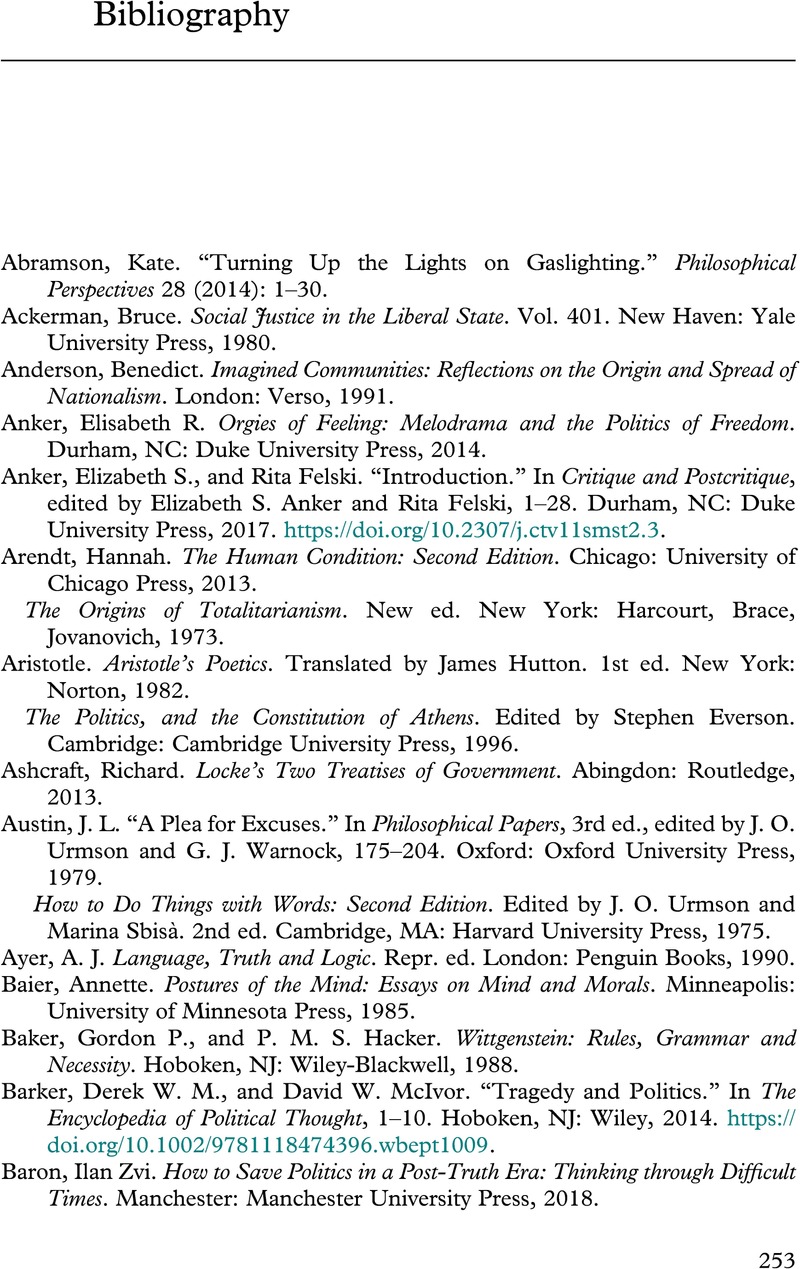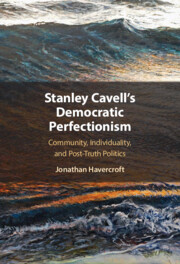Book contents
- Stanley Cavell’s Democratic Perfectionism
- Stanley Cavell’s Democratic Perfectionism
- Copyright page
- Contents
- Acknowledgments
- Abbreviations
- Introduction
- 1 The Claiming of Community
- 2 Stanley Cavell as Methodologist
- 3 Two Kinds of Agreement in Democratic Theory
- 4 The Politics of Tragedy, Recognition, and Acknowledgment
- 5 Film, Gender, Gaslighting
- 6 The Limits of Democratic Perfectionism
- Conclusion
- Bibliography
- Index
- References
Bibliography
Published online by Cambridge University Press: 17 August 2023
- Stanley Cavell’s Democratic Perfectionism
- Stanley Cavell’s Democratic Perfectionism
- Copyright page
- Contents
- Acknowledgments
- Abbreviations
- Introduction
- 1 The Claiming of Community
- 2 Stanley Cavell as Methodologist
- 3 Two Kinds of Agreement in Democratic Theory
- 4 The Politics of Tragedy, Recognition, and Acknowledgment
- 5 Film, Gender, Gaslighting
- 6 The Limits of Democratic Perfectionism
- Conclusion
- Bibliography
- Index
- References
Summary

- Type
- Chapter
- Information
- Stanley Cavell's Democratic PerfectionismCommunity, Individuality, and Post-Truth Politics, pp. 253 - 265Publisher: Cambridge University PressPrint publication year: 2023

